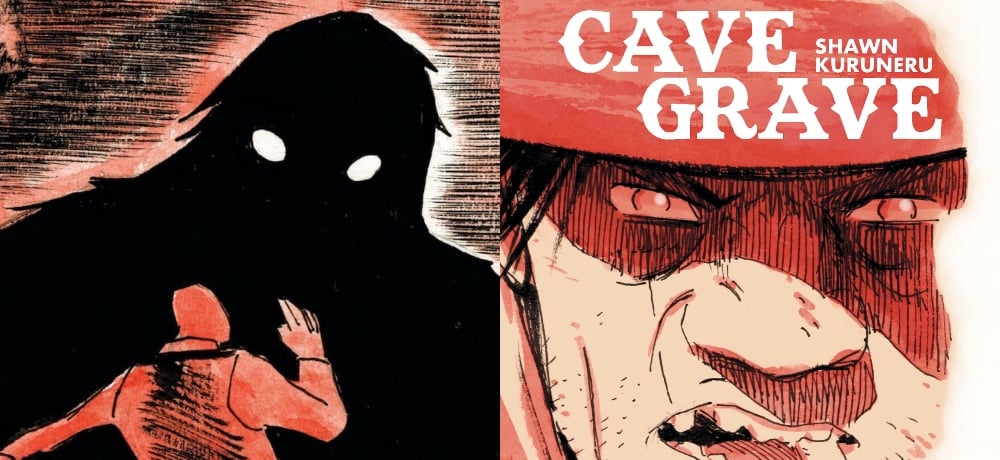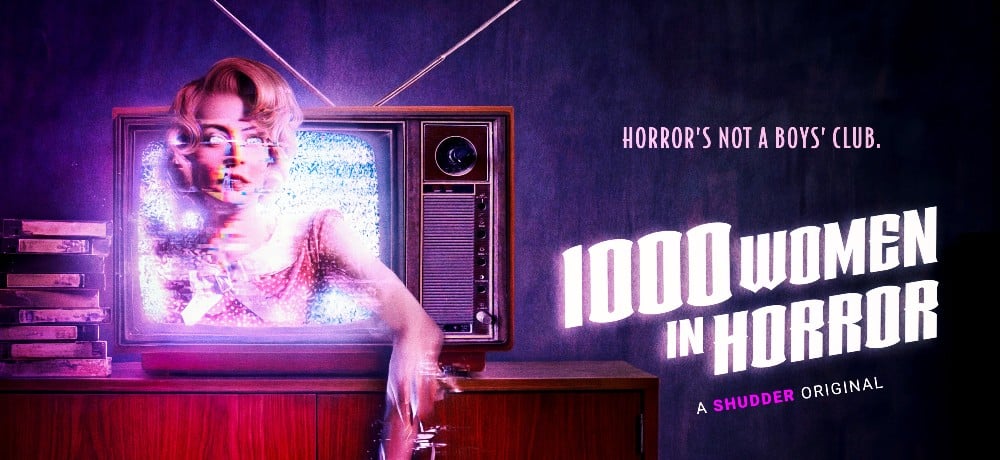





[Welcome back, readers! With the 2017 Sundance Film Festival beginning this week, we thought it would be fun to take a look back at some of the great midnight movies that have come out of the fest over the years. Click here for more Midnight Memories from Daily Dead!]
It’s unfortunate that when many fans hear the names “Lucky McKee” and “Sundance” mentioned in the same sentence, the first thing that comes to mind is an incident in which an audience member had a total public meltdown after the festival screened McKee’s fourth feature (fifth if you count Red, which he co-directed), The Woman, in 2011. After the movie—an adaptation of a novel of the same name he co-wrote with Jack Ketchum—premiere as part of Sundance’s Midnights program, an irate man stood up and began shouting that the movie was “disgusting” and that it degraded both men and women. The freak-out was caught on video and went viral within the film community, garnering The Woman a reputation as a piece of art so potentially transgressive and shocking that it would warrant such a response even before most people saw the movie.
The bummer of the whole thing is that the video and the reaction became the story, not the movie itself. This one incident became Lucky McKee’s Sundance legacy, when really it should be that between 2002’s May and 2011’s The Woman, he has premiered two of the best horror movies of the 2000s in the fest’s popular midnight slot. The former helped really launch his career, selling to Lionsgate after its premiere and quickly branding McKee as one of the new “Masters of Horror” (as evidenced by his participation in the Showtime anthology series of the same name, having written and directed the season 1 episode “Sick Girl”). The latter earned him a reputation for being one of horror’s premiere provocateurs, albeit unfairly. McKee’s movies don’t shock for the sake of shocking, and when he pushes buttons—as he does in a big, bad way with The Woman—it’s always in the service of the story he’s telling.
One of the very best voices in contemporary horror—and, to be honest, my favorite one currently making movies—Lucky McKee doesn’t make films that could be made by anyone else. His work is challenging and audacious, playful and very funny. It is political in the sense that McKee has thus far told stories about women from the perspective of women, presenting them not as infallible heroes or psychotic villains but as three-dimensional human beings with strengths and flaws, capable of doing good (or, at the very least, meaning well) and of doing unspeakably evil acts. Women have been boxed into “types” in horror movies for so long that taking them out of those boxes and affording them depth and focus feels positively revolutionary. It’s just one of the many things that makes Lucky McKee the best.
With May, McKee created something too rare in the genre, which so often leans entirely on form, tropes, and archetypes: he made a character study that still works as a horror movie. It is a heartbreakingly sad portrayal of loneliness and isolation about a woman (regular collaborator Angela Bettis) who so wants to find love but just can’t seem to fit in with the rest of the human race—a feeling with which many of us who are drawn to horror can identify.
Angela Bettis’ performance as the titular May is one of my favorite characters not just in horror, but she joins Marge Gunderson, Snake Plissken, and Hard Eight’s Sydney as one of my favorite characters in all of cinema. She is weird and sad and awkward and sexy and sweet and totally messed up, and the fact that she eventually goes to a very dark place has everything to do with outside influences reminding her just how outside she is. It’s ironic that Bettis was later cast as Carrie White in Syfy’s TV movie remake of the classic Stephen King adaptation, as she had already played the perfect modern-day incarnation of the character in May.
The key moment in May isn’t, as the marketing might have you believe, the scene in which Bettis decides to make her own friend out of human body parts. Sure, that’s the point at which it becomes a full-blooded horror movie (pun intended), but that’s not what is at the center of May’s heart. The film’s thesis comes much earlier, when May is out on a date with Adam, the character played by Jeremy Sisto (who, like everyone in the movie, is terrific), and he says to her “I like weird.”
Therein lies the greatness of Angela Bettis’ performance and of May: it is about the difference between the talk and the walk. We horror fans may all fancy ourselves a little more adventurous than the average Joe—or at least are willing to present ourselves as such if it might impress someone with whom we are romantically interested. But May is a movie that calls out this bluff. May, the character, isn’t just a quirky detour—a girl who is a little offbeat and will indulge our interest in Dario Argento movies. May is weird and means that shit. She can’t help it. She would much rather be “normal” like everyone else—even those who pride themselves as being into “weird”—but she’s just too far broken. It’s what makes the movie such a beautiful tragedy.
The Woman, which had its Sundance premiere and subsequent theatrical release nearly a decade after May, is a messier movie in every way: its storytelling is looser, its performances broader, its themes more unwieldy. None of this is on accident, and none of this makes the film less than brilliant. McKee is always in control of the chaos. A sort-of sequel to 2009’s Offspring (also based on a Ketchum novel), the film finds Pollyanna McIntosh reprising her role as a feral woman who is captured by small-town lawyer Chris Cleek (Sean Bridgers), who chains her up in his cellar and tells his family he’s going to domesticate her. After much torture and degradation, Cleek and his family (including Angela Bettis as his wife and Lauren Ashley Carter as his depressed teenage daughter) lose control of the situation and must pay the price for their crimes against the natural order, as personified by The Woman herself.
More than half a decade after its Sundance premiere, The Woman continues to polarize audiences. There are those who still accuse it of misogyny and exploitation—of reveling in that which it is decrying and presenting only female characters who are every bit as awful as their monstrous male counterparts. Then there are those of us who can see that while the movie goes to some very dark places and can be tough to watch at times, it's not as though McKee is reveling in violence and gore for their own sake. There are ideas behind the images that he puts on screen, and as long as you understand that, even the hardest moments become easier to stomach. The only way I can imagine getting offended by The Woman is if you take what's being said (about men in particular) personally. In that case, I'm glad you're seeing The Woman and it's bothering you. You need to be told what the movie is telling you.
For all its blunt-edged political statements and big choices in everything from the over-the-top gore to the seemingly incongruous pop rock songs (they’re by Sean Spillane, and they are terrific), The Woman is the kind of movie best unpacked with a razor. Like May, it is a tragedy, rife with the bruised sadness of inevitability. These are lives that are broken from the film’s outset; the difference here is that May is a human afraid of becoming a monster and Chris Cleek is a monster only pretending to be human. And just as May is the most honest character in May, so, too, is The Woman in The Woman, played with staggering bravery and greatness by Pollyanna McIntosh. Both characters call everyone else on their bullshit in brutal, bloody fashion.
There are a lot of great horror films that got their start as part of Sundance Midnights: The Signal, The Descent, Frozen, It Follows, and a host of others, several of which have been covered this week by the great writers at Daily Dead. None of them mean as much to me as the pair of Lucky McKee films that had their premieres at the festival, which still rank among my favorite movies of the 2000s and offer more rewards upon endless revisits than most contemporary horror films I can think of.
McKee already had one feature to his credit when May screened at Sundance, so I can’t say that the festival deserves all the credit for making his career. I suspect he would have made a name for himself even without Sundance—he’s just too talented for me to believe otherwise—but because Sundance did premiere my two favorites of his movies, I will forever be grateful to the festival. More than that, though, I will forever be grateful to Lucky McKee for making some of the most original, thoughtful, brilliantly acted, darkly comic, and exciting movies in the genre. Now that, guy in the audience of The Woman, is something worth getting worked up about.
---------
Click here to read more Sundance Midnight Memories from the Daily Dead team.